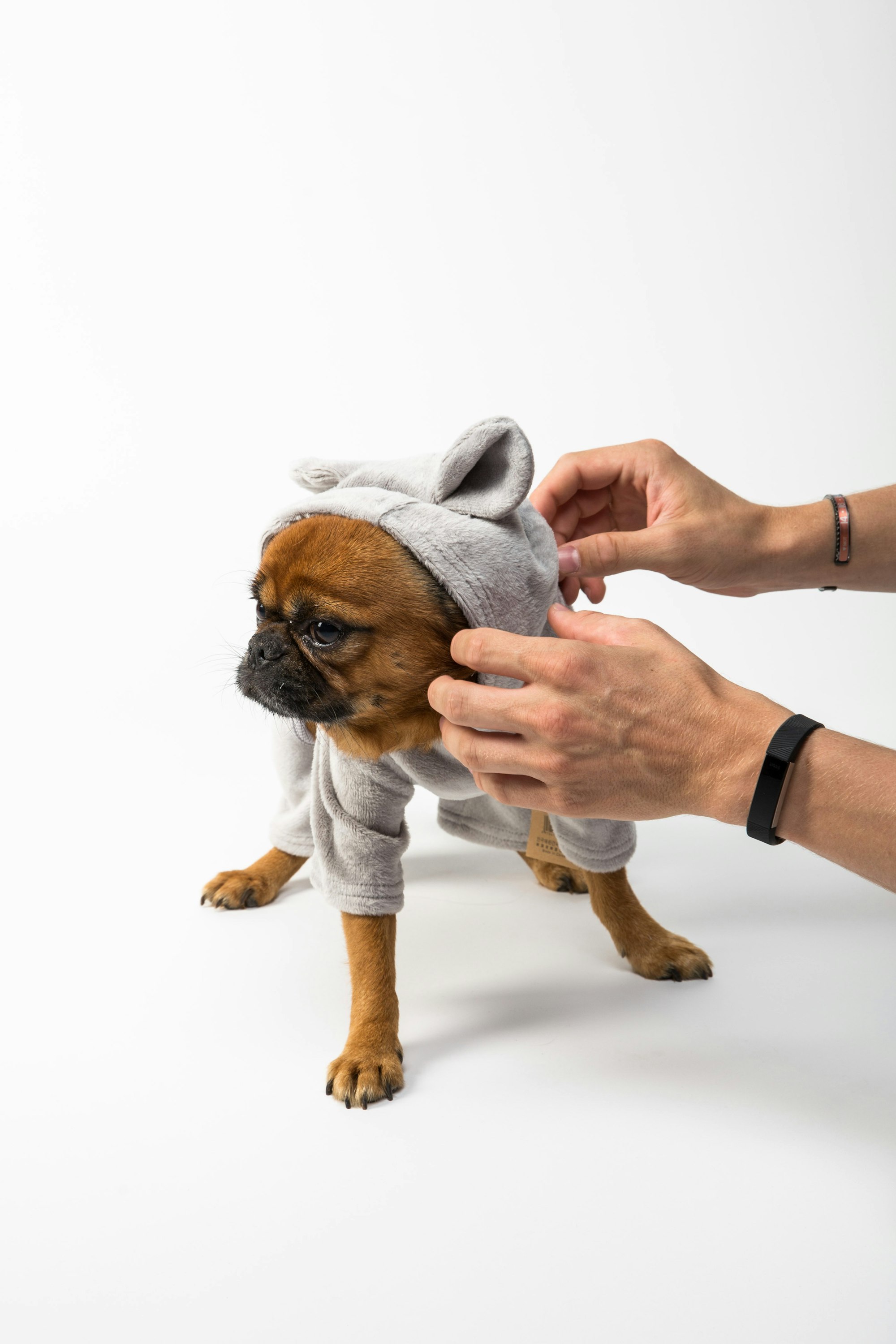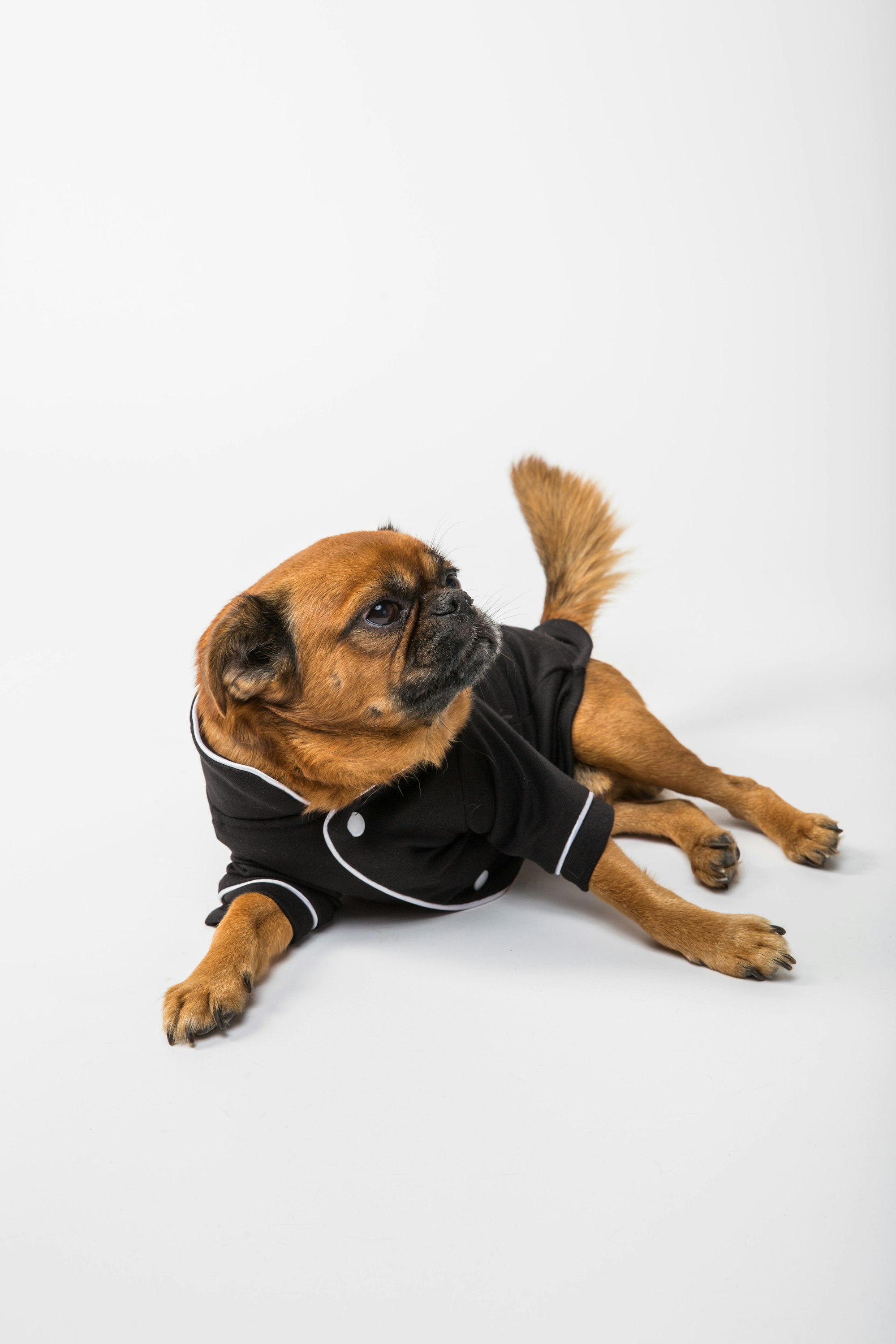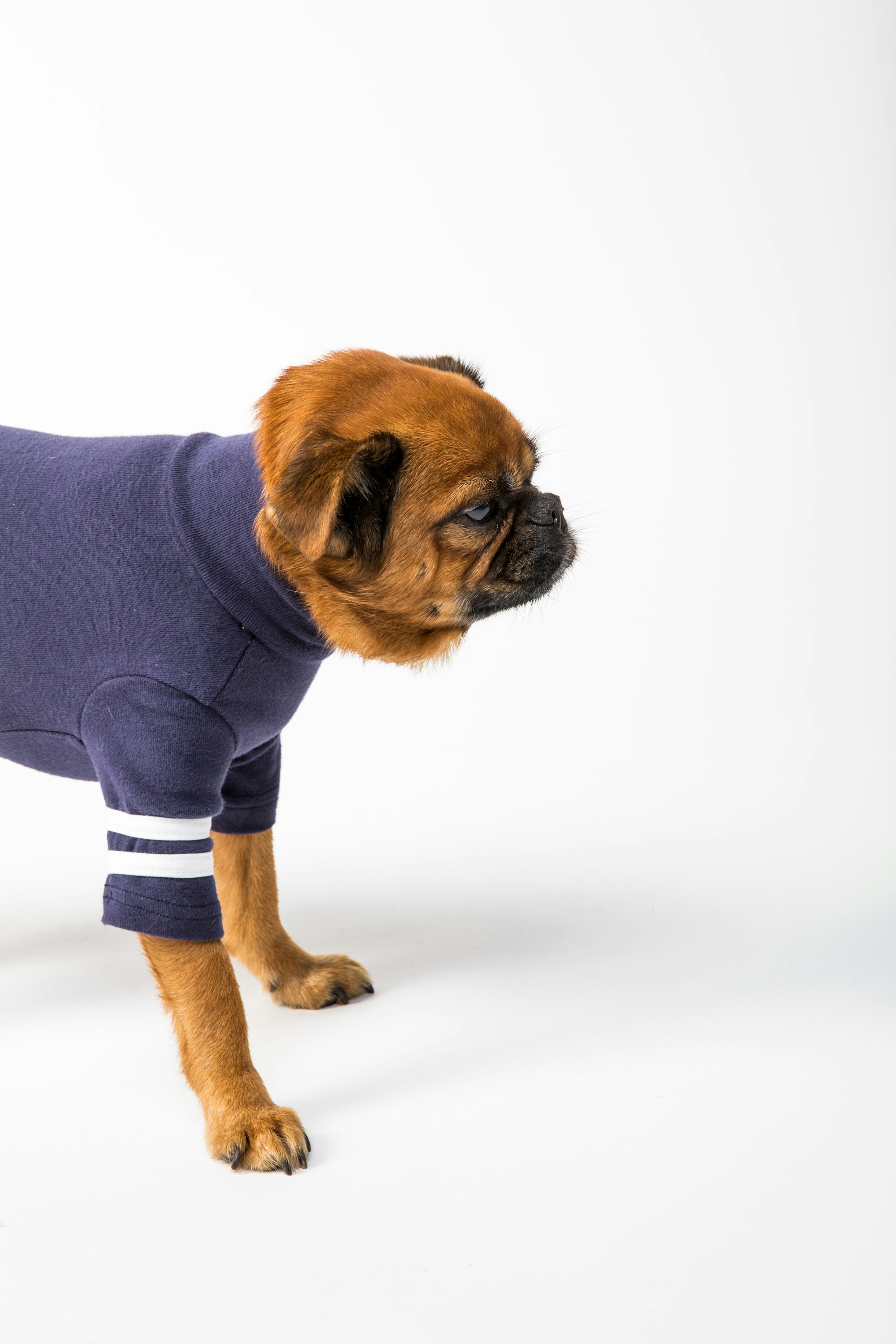The Brussels Griffon is a small companion dog that has been popular since the 19th century. This remarkable breed is known for its intelligence and loyalty, making it an ideal pet for many families.
This article aims to provide an in-depth guide to understanding and nurturing the Brussels Griffon breed. It will cover physical characteristics, personality traits, daily care needs, health concerns, training tips, interactions with children and other pets, and their influence on pop culture. By reading this guide, readers will understand what makes the Brussels Griffon so special and how to care for them properly.
This article offers valuable information on ensuring that you provide your Brussels Griffon with the best possible lifestyle so they can live a long and healthy life. We will explain why early socialization is important, discuss common behavioral problems owners may encounter, and provide strategies for successful training.
Furthermore, we will explore suitable living conditions for this breed and factors to consider when adopting one into your family. Finally, we will look at some famous examples of this breed from movies, TV shows, and literature which have helped shape its popularity over time.
Understanding the Brussels Griffon

This breed is characterized by its small size and weight, varied coat type and colors, and some unique features that make it stand out. The Brussels Griffon is one of the Toy Breeds recognized by the American Kennel Club, weighing in at no more than 8-10 pounds.
Its coat can be either smooth or rough depending on personal preference. This breed also has a unique face shape with large eyes, a flat muzzle, and an elongated nose, giving it a mischievous expression.
Its general temperament is known to be friendly and affectionate while exhibiting some typical behaviors that add to its charm. These behaviors include bursts of energy, curiosity towards new environments and people, and intelligence, making training relatively easy.
As such, this noble companion makes for an excellent pet due to their endearing characteristics.
Living with a Brussels Griffon

Living with a Brussels Griffon involves daily care and maintenance of their dietary needs, grooming essentials, and exercise requirements, monitoring health concerns, and understanding their expected lifespan.
When caring for a Brussels Griffon, providing them with a healthy diet tailored to their size and activity level is important. Grooming should be done regularly to keep their coat clean and free from tangles or mats.
In addition to regular walks or playtime, this breed should participate in mentally stimulating activities such as dog sports or puzzle toys. It is also important to be aware of any common health issues associated with the breed such as respiratory problems or eye disorders that may require regular check-ups with the vet. The average life expectancy for a Brussels Griffon is 12-15 years when cared for properly.
For a new Brussels Griffon owner, incorporating a Fi collar into their furry companion's life can bring numerous benefits. The Fi collar offers advanced GPS tracking and smart features tailored to enhance the safety and well-being of your beloved pet. Brussels Griffons are known for their curious nature and adventurous spirit, which can sometimes lead them into unexpected situations. With the Fi collar, you can have peace of mind by easily locating your Griffon in real-time and ensuring their safety. T
Training a Brussels Griffon
Early socialization and training are essential for successfully integrating a Brussels Griffon into family life, as it allows for the development of appropriate behaviors and ensures they are equipped with the necessary skills.
Socializing a Brussels Griffon puppy early on is one of the best investments owners can make in their pet's long-term well-being. Puppy training classes allow owners to expose their pups to different experiences, people, sounds, and smells in a safe environment. This helps them develop into well-rounded adults that can cope with new situations more easily.
Furthermore, proper grooming is also important for Brussels Griffons as they have a wiry coat that requires regular maintenance from an experienced professional groomer. As this breed is sensitive in nature, owners should take extra precautions when training them and use positive reinforcement techniques such as treats or praise to encourage good behavior.
Crate training, potty training, and leash training should all be part of the learning process for a Brussels Griffon puppy so they can become calm companions that are comfortable in any situation.
The Brussels Griffon and Your Family
Adopting a Brussels Griffon can be a delightful experience for the right family, but there are important considerations to remember when choosing this noble companion. The Belgian street dog that is now known as the Brussels Griffon.
It has been around since the 1800s and comes in two varieties. Smooth Coated and Rough Coated Brussels Griffons. It is important to understand their temperaments before making any decisions.
Both types of Griffons have great personalities; they are loyal, friendly, intelligent, and affectionate. When selecting a pup from either variety, it is important to research the National Breed Club's breeding criteria guidelines and look into its history with other dogs.
While they tend to get along well with cats and children, some may not do well with larger dogs or smaller animals due to their protective nature. Understanding these qualities will help owners create an ideal home environment where both animal and owner can thrive together.

Brussels Griffon Grooming Guide
Brussels Griffons, also known as Belgian street dogs, are known for their distinctive look and engaging personality. This small, sturdy toy dog breed is beloved for its expressive face, including large eyes and a smushed nose. Brussels Griffons come in two types: the Rough Coated Brussels Griffons and the Smooth Coated Brussels Griffons. Both types require specific grooming attention to keep them looking their best and ensure their health. Below is a detailed grooming guide for Brussels Griffons.
1. Skin Care
Brussels Griffons have sensitive skin that can be prone to allergies and irritations. This makes regular skin care important. You should check their skin regularly for any signs of redness, swelling, or parasites like ticks and fleas. Pay attention to any changes in your dog's behavior, such as excessive scratching, which could indicate a skin problem.
A gentle dog shampoo during baths can help protect and keep their skin clean. It's generally recommended to bathe a Brussels Griffon every 4-6 weeks, but this can vary depending on the dog's lifestyle and any skin conditions. Consult with a veterinarian for personalized advice. If your dog has been diagnosed with a skin condition, your vet might recommend a specific medicated shampoo.
2. Coat Care
Coat care varies significantly between rough and smooth-coated Brussels Griffons. Rough-Coated Brussels Griffons: The rough coat of a Brussels Griffon needs weekly brushing to prevent matting and to keep the coat healthy.
The hair on their face, particularly around the eyes and mouth, should be checked regularly and cleaned to prevent staining and build-up of debris. Rough-coated Brussels Griffons may also need their coats stripped several times yearly. Hand stripping involves removing dead hair by hand, which can help maintain the coat's texture and color.
Smooth-Coated Brussels Griffons: The smooth coat of a Brussels Griffon requires less maintenance, but they still benefit from regular brushing to distribute oils and remove loose fur. Smooth Coated Brussels Griffons, often reddish-brown in color, shed more than their rough-coated counterparts and thus may require more frequent grooming sessions.
3. Eye Care
Brussels Griffons have prominent eyes that require careful attention. Regularly check their eyes for any redness, swelling, or discharge. Use a clean, damp cloth to gently clean around their eyes and keep this area free of debris. Tear staining can be a common issue with this breed, so wiping the area daily can help prevent staining. Consult your vet immediately if you notice anything unusual, such as excessive tearing or cloudiness in the eyes.
4. Ear Care
Regular ear care is important for Brussels Griffons, as they are prone to ear infections. The ears should be checked weekly for signs of infection such as redness, swelling, or a bad smell. Clean your Griffon's ears with a vet-recommended cleaner to prevent the build-up of wax and debris.
Never insert anything into the ear canal. Clean the outer part. If your dog is scratching its ears excessively, shaking its head, or if the ears smell bad, this could indicate an infection, and you should seek veterinary advice.
The Brussels Griffon in Pop Culture
By exploring the Brussels Griffon's appearances in popular culture, it is possible to gain insight into the breed's remarkable influence and impact on society. The Brussels Griffon, also known as the Belgian Griffon or Griffon Bruxellois, has been featured in many movies and TV shows such as As Good As It Gets starring Jack Nicholson.
In addition, they are often referred to as 'Velcro Dogs' due to their affinity for following their owners around everywhere they go. These small dogs have big personalities that draw people towards them, making them perfect characters to be portrayed on screen.
The remarkable traits of the Brussels Griffon make them a great subject for films and books. They are incredibly intelligent dogs with an outgoing personality, which makes them ideal for participating in various activities with their owners such as agility training or just playing fetch in the backyard.
From literature to movies and television shows, it is clear that this cute breed has made its way into popular culture with ease and success.
Frequently Asked Questions
How much exercise does a Brussels Griffon need?
The Brussels Griffon is a breed that requires an average of one to two hours of exercise per day for it to remain physically and mentally healthy.
This can be achieved through walking, running, playing fetch, or participating in agility exercises.
In addition, providing puzzle toys for mental stimulation can help ensure the Brussels Griffon remains physically and mentally active.
How long do Brussels Griffons typically live?
The average lifespan of a Brussels Griffon is between 12 and 15 years. This is slightly shorter than the average life expectancy for dogs, which tends to be around 10-13 years.
Generally speaking, these dogs are relatively healthy and have few major medical issues. However, they may suffer from common canine illnesses such as allergies or dental problems like tooth decay.
Therefore it is important to keep up with regular vet visits and routine checkups to help your pet live a longer and healthier life.
What is the best way to crate train a Brussels Griffon?
Crate training a Brussels Griffon can be a challenging task. It requires patience, consistency, and positive reinforcement. Although it may seem like an arduous process at first, with the right approach, crate training can foster trust between the owner and their four-legged companion.
The juxtaposition of positive reinforcement techniques such as verbal praise or treats when entering or exiting the crate, with punishments, such as timeouts for bad behavior will help to encourage desirable behaviors within the dog.
Additionally, establishing a routine by feeding and exercising around the same times each day can prove beneficial in creating an environment of calmness and security for your Brussels Griffon.

How does Brussels Griffons interact with cats and other small pets?
Brussels Griffons are generally friendly and accepting of cats and other small pets. They are known to form close bonds with other animals, provided they have been socialized properly from an early age.
Owners must ensure that their Brussels Griffon is exposed to various animals to create positive associations and prevent potential aggression. Owners should also be aware that some Brussels Griffons may exhibit prey-drive behaviors toward smaller animals, so carefully monitoring interactions between the dog and any other pets is important.
Is a Brussels Griffon suitable for a home with small children?
The Brussels Griffon is a loyal and loving breed that can make an excellent companion for the right family. They have a gentle nature, making them suitable for homes with small children - however, it is important to ensure that all interactions are supervised.
With their intelligent and alert personalities, these dogs thrive on attention and affection and will form strong bonds with their owners. The imagery of the Brussels Griffon's friendly face, wagging tail, and bright eyes can bring comfort to any family looking for a pet that will be both protective of their young ones yet still lovable - perfect for bringing joy into any home.
Conclusion
The Brussels Griffon is a remarkable breed that has earned its rightful place in pop culture and the hearts of many. Their unique features, cheerful dispositions, and easy maintenance make them an ideal companion for any family.
They can be a loving addition to any household with early socialization and consistent training. As the adage goes: “A dog is the only thing on earth that loves you more than he loves himself.”
The Brussels Griffon embodies this sentiment perfectly, offering unconditional love and companionship to all those lucky enough to share their lives with them.
For more helpful articles about pet-parenting tips, check out the Off Leash blog at TryFi.com.
Want to know more about TryFi.com? The Fi Dog Collar is a GPS tracking collar that not only keeps track of your dog’s location, activity levels, and sleep patterns, but it also alerts you if your dog escapes your backyard. This is the fastest way to find your dog after an escape. Try the Fi Dog Collar today!

